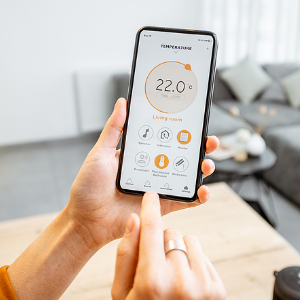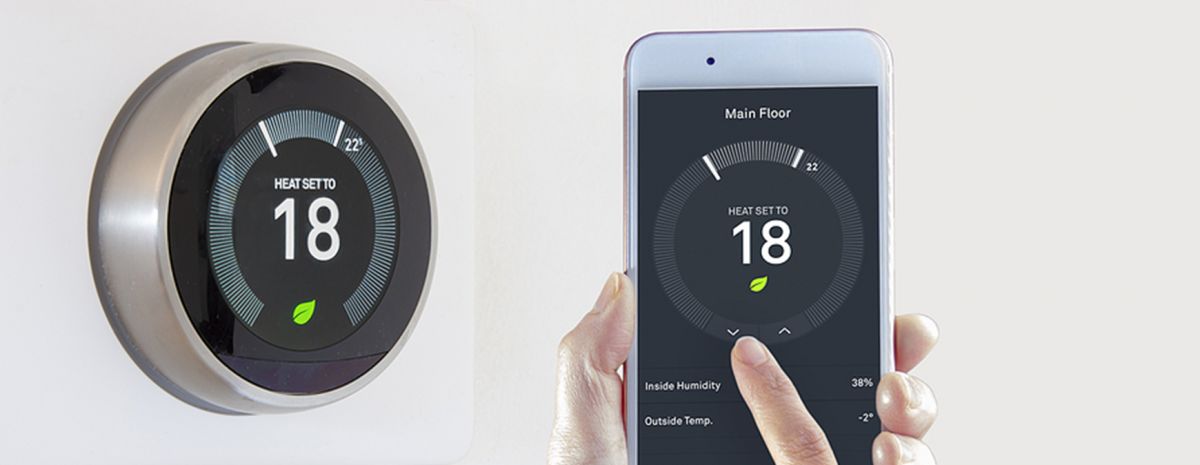RSI is a Great Training Option for Everyone
Learn more about how we can prepare you to advance your career.
Technology has been shaping the HVAC industry and its customers’ lives for some time now: smart thermostats that learn the temperature preferences of homeowners and adjust to them automatically; ceiling fans that respond to voice command via Siri- or Alexa-enabled devices; and innovations in automation that allow for predictive diagnostics and system performance insights.1
Now that the coronavirus pandemic has made social distancing a top priority for Americans, many of these same technologies may play an even bigger role in how HVAC contractors run their businesses.2 And that could mean aspiring technicians in HVAC training now could work with these innovations once they enter the industry.
HVAC & Refrigeration Technicians Are Essential Workers
COVID-19 resulted in job losses for tens of thousands of Americans, and experts aren’t sure how long the economic recovery could take.3
Many HVAC and refrigeration technicians are still working because the federal government classified them as essential workers. Their work is critical to the continued operation of necessary infrastructure, so they have a social obligation to continue reporting to work.4
When you think about a sweltering summer with no A/C, especially for the elderly or immunocompromised who may be sheltering in place, it’s easy to see why HVAC technicians are essential workers.5
Get Started on the Path to a New Career
Fill out our form to learn how we can help you change your life.
But how can HVAC and refrigeration technicians stay safe while serving the public? Digital, remote and connected HVAC technologies may offer some solutions.2
3 Digital Technologies to Support Safer HVAC Service & Repair
1. Digital Communication: Email, Mobile Alerts & Video Conferencing

Email and text messaging can help HVAC technicians cut down on face-to-face communication with homeowners. Techs can notify customers before arriving at their homes so they have ample time to leave or move to other areas of the property.
If customers have questions, techs can answer them digitally—or answer them by using more traditional methods like the telephone.2
Zoom isn’t just for office workers or book clubs. Video conferencing can go a long way in supporting remote HVAC services. For example, service calls can start via video similar to the way they are in the medical industry: think “tele-visit” instead of “telehealth.”6
The HVAC technician can conduct the preliminary diagnosis digitally, possibly eliminating the need for an emergency visit altogether.6
An even more efficient option given the HVAC technician shortage would be to have customer service representatives handle the initial consultation, as well as other customer needs and sales. In such a scenario, HVAC techs could focus only on making the necessary repairs or maintenance.6
2. Remote Diagnostics: The IoT and Smart Homes
The Internet of Things (IoT) consists of billions of physical devices located around the globe that are connected to the internet. Many of these devices can be found in smart homes, where they may be part of HVAC/R systems. Examples may include the smart thermostats and automation mentioned earlier in the article.7
These connected devices can not only allow for remote control of a home’s HVAC/R equipment but also for the data collection and sharing that can enable a host of HVAC services:7,8
Real-Time Monitoring
An HVAC technician can monitor a customer’s heating and cooling system without ever stepping foot into the home, ensuring optimal system functionality and indoor comfort.8
Predictive Maintenance
Internet-connected HVAC systems can analyze the data they gather and alert techs of abnormalities or system failures before they snowball into major problems or all-out breakdowns.8
Remote Diagnostics
Even basic HVAC troubleshooting can be handled remotely thanks to the IoT. Instead of having to visit the customer’s property and diagnose the problem in-person, the tech can review the system’s data remotely and diagnose the issue from the office. In some cases, the system may alert the technician before the customer even notices anything is wrong.8
3. Remote On-the-Job HVAC Training & Oversight: Augmented Reality
Some older adults are at a higher risk of contracting and becoming seriously ill from COVID-19,5 but that doesn’t mean veteran HVAC technicians can’t still provide on-the-job training or guidance. Thanks to augmented reality, they can accompany new hires in the field, seeing everything they see through the AR glasses, allowing them to solve the problem together.6
Safety Precautions during HVAC Service Calls
Technologies like the IoT and augmented reality are just one solution to keeping HVAC technicians and their customers safe during the pandemic.6,7
But what about during service calls, when remote communication—and the protection it offers—isn’t an option?
It may be helpful to look to the HVAC industry for tips for making safer service calls during the global health crisis.
Additional Sources
1https://www.achrnews.com/blogs/16-guest-blog/post/140301-how-technology-is-changing-hvac-systems-for-the-better
2https://www.achrnews.com/articles/143136-technology-offers-protection-to-essential-workers-during-covid-19-pandemic
3https://www.pewresearch.org/fact-tank/2020/06/09/hispanic-women-immigrants-young-adults-those-with-less-education-hit-hardest-by-covid-19-job-losses/
4https://www.cisa.gov/sites/default/files/publications/Version_3.0_CISA_Guidance_on_Essential_Critical_Infrastructure_Workers_1.pdf
5https://www.aarp.org/health/conditions-treatments/info-2020/corona-virus-economic-guidelines.html
6https://www.achrnews.com/blogs/18-business-management-blog/post/143190-the-new-hvac-normal-should-be-digital
7https://www.zdnet.com/article/what-is-the-internet-of-things-everything-you-need-to-know-about-the-iot-right-now/
8https://news.ewmfg.com/blog/beyond-nest-9-ways-iot-is-reshaping-the-hvac-industry
This blog has been labeled as archived as it may no longer contain the most up-to-date data. For a list of all current blog posts, please visit our blog homepage at https://www.rsi.edu/blog/




